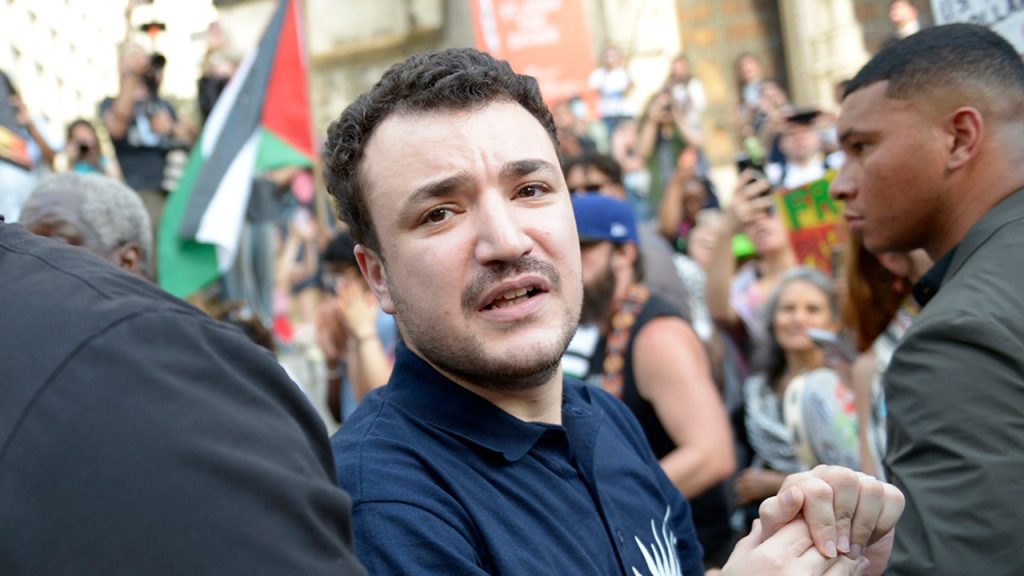Immigrant Activist Faces Deportation Over Alleged Omissions on Green Card Application
In a significant immigration case that has ignited debate about free speech and immigration enforcement, a federal judge has ordered the deportation of Mahmoud Khalil, citing undisclosed information on his green card application. Judge Jamee Comans ruled on September 12 that Khalil failed to reveal his internship with the United Nations Relief and Works Agency (UNRWA) and his associations with Columbia University Apartheid Divest, an anti-Israel campus coalition. The case highlights the complex intersection between immigration law, political activism, and national security concerns that continues to shape American discourse on civil liberties.
The deportation order follows a months-long legal battle that began with Khalil’s arrest by Immigration and Customs Enforcement (ICE) in March at his Manhattan apartment. Court documents unsealed this week reveal that Judge Comans denied Khalil’s motion for relief, determining that his omissions were deliberate rather than accidental. Federal authorities have framed these omissions as particularly concerning because they involve politically sensitive affiliations that potentially raise both national security and foreign policy issues. The government’s position suggests that complete disclosure on immigration applications is essential, especially when the information involves organizations that might be politically controversial.
Khalil’s case has become more complex due to his period of detention and subsequent release. After spending over three months detained in Louisiana, Khalil was released in June when U.S. District Judge Michael Farbiarz determined he posed neither a flight risk nor a danger to the public—a ruling that contrasted with the immigration court’s later decision. In a separate but related action, Judge Farbiarz temporarily blocked Khalil’s removal while the court reviewed his claim that the government’s actions constituted retaliation for protected political speech. This temporary protection highlighted the constitutional questions at stake in the case, beyond the technical immigration violations cited in the deportation order.
The legal team representing Khalil has confirmed they plan to appeal the deportation decision to the Board of Immigration Appeals, signaling that the case is far from resolved. Their strategy appears to position Khalil’s situation not merely as an immigration matter but as a civil rights issue with broader implications. This framing reflects growing concerns among civil liberties advocates about whether immigration enforcement is being used as a tool to suppress political dissent, particularly regarding politically sensitive issues like the Israeli-Palestinian conflict. The involvement of the American Civil Liberties Union, which published the court filings, further underscores the civil liberties dimensions of the case.
Khalil himself has strongly contested the legitimacy of the proceedings, characterizing them as politically motivated retaliation. In a statement following the deportation order, he claimed, “It is no surprise that the Trump administration continues to retaliate against me for my exercise of free speech. Their latest attempt, through a kangaroo immigration court, exposes their true colors once again.” This statement reflects his view that the immigration charges serve as a pretext for punishing his political activism, particularly his involvement in pro-Palestinian advocacy. Such claims raise important questions about the extent to which non-citizens in the United States can engage in political speech without facing immigration consequences.
As this case moves through the appeals process, it will likely continue to serve as a flashpoint in ongoing national debates about immigration enforcement priorities, freedom of speech protections for non-citizens, and the balance between national security concerns and civil liberties. The outcome could establish important precedents regarding the government’s authority to consider political affiliations in immigration proceedings and the level of disclosure required on immigration applications. For now, Khalil remains in the United States while his appeal is pending, but the case highlights the precarious position of politically active immigrants and the high stakes involved when immigration status intersects with controversial political causes. The Department of Homeland Security has not yet commented publicly on the judge’s decision or the allegations of political retaliation.


